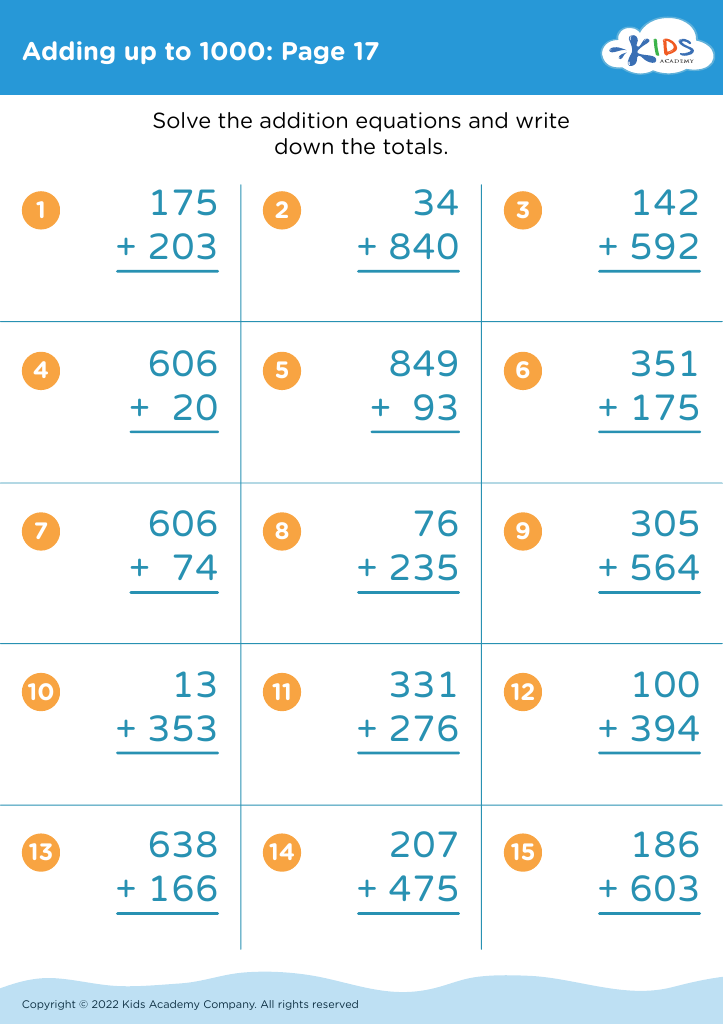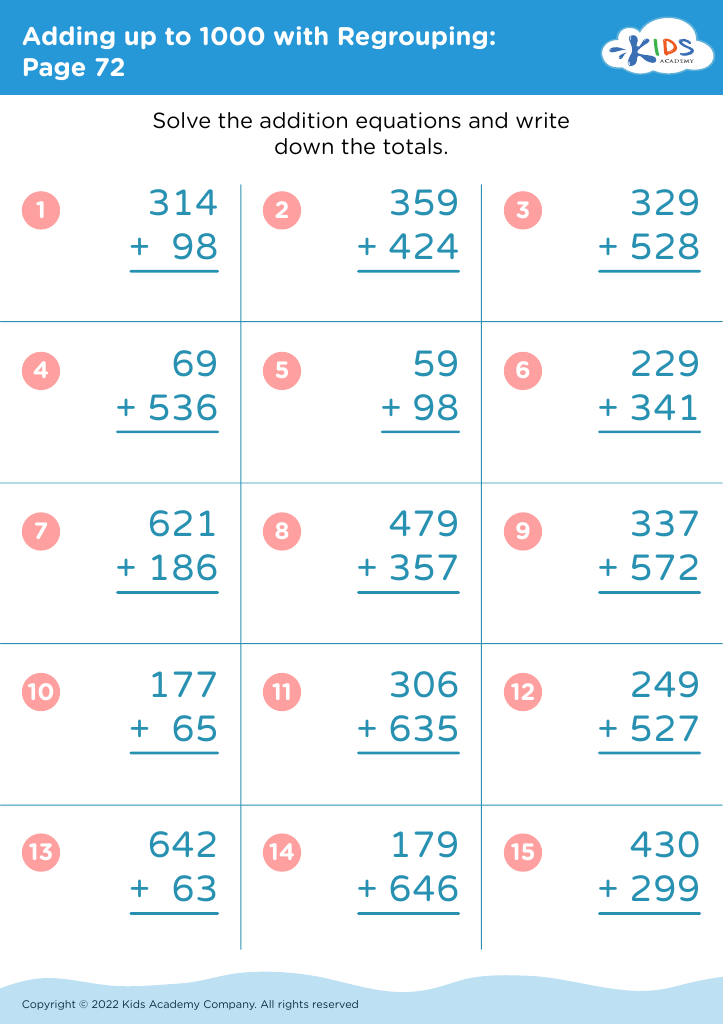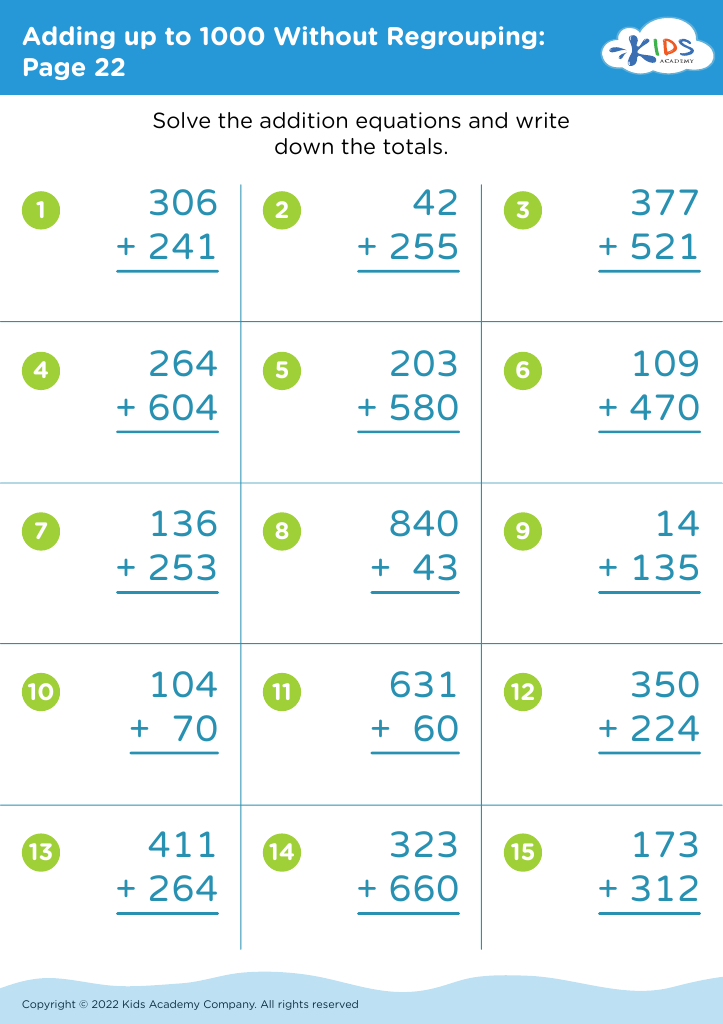Problem Solving Adding up to 1000 Worksheets for Ages 7-9
3 filtered results
-
From - To
Boost your child's math skills with our "Problem Solving Adding Up to 1000 Worksheets" designed specifically for ages 7-9! These engaging worksheets focus on enhancing children's problem-solving abilities while they learn addition concepts. Each activity presents them with fun scenarios that challenge them to add numbers accurately and logically reach the sum of up to 1000. Through a variety of exercises, kids will develop critical thinking, improve their mathematical understanding, and build confidence in their abilities. Upgrade your learning experience today with these interactive and effective resources that make adding fun and approachable for young learners!
Problem solving with numbers, especially adding up to 1000, is crucial for children aged 7-9 as it lays a strong foundation for their mathematical understanding and critical thinking skills. At this developmental stage, children begin to grasp more complex mathematical concepts, and handling larger numbers helps enhance their numerical fluency.
Teachers and parents should care because engaging with addition tasks fosters problem-solving abilities, allowing children to approach mathematical challenges flexibly and creatively. This skill not only boosts their confidence in math but also in general problem-solving—a valuable life skill. Additionally, making sense of numbers and quantities strengthens their analytical thinking, setting the stage for later subjects, including algebra and geometry.
Moreover, learning to add numbers up to 1000 offers opportunities to integrate real-life situations, such as budgeting or planning. This contextual learning makes math relevant and enjoyable, increasing student engagement. With the right support from educators and parents, children can develop perseverance and resilience, as they encounter and overcome challenges in problem-solving. Ultimately, nurturing these skills ensures they are better prepared for academic success and everyday situations involving math. Encouraging this practice at home or school cultivates a lifelong appreciation for learning.


















